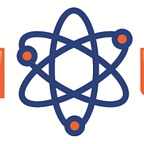Case Study: Revolutionizing Enterprise Support with AI-Powered Automation
Client Overview
Our client, a software company, collaborates with leading IT software vendors such as ServiceNow, Atlassian, and Salesforce, offering seamless integrations with IT Service Management (ITSM), knowledge management, Customer Service Management (CSM), and social collaboration solutions. Their mission is to empower businesses with efficient and effective IT support systems. This case study sheds light on how Fission Labs leveraged cutting-edge technologies to revolutionize support operations and create a lasting impact.
Problem Statement
The client’s challenges revolved around reducing dependency on support agents for handling Level 1 request tickets, creating a dynamic knowledge database, automating ticket allotment and escalation based on agent skills and queues, and gaining actionable insights into the system’s efficiency.
Key Objectives
- Automating Generic Responses: Minimizing the reliance on support agents for routine Level 1 request tickets through automated generic responses.
- Building an Evolving Knowledge Database: Creating a dynamic knowledge database to cater to frequently repeated queries, thereby saving time and improving response accuracy.
- Ticket Allotment and Escalation: Developing an automated system for allotting and escalating tickets based on agent skills and queues, streamlining the ticket management process.
- Visual Insights: Establishing a visual analytics dashboard to provide insights into the system’s efficiency, allowing managers to monitor key performance indicators (KPIs).
Requirements
The project had several specific requirements to address the challenges and objectives:
- Validation of Issue Closure: Incorporating constraints in the existing incident management system to ensure issue closure is valid before closing the incident ticket.
- Reduced Turnaround Cost: Reducing the average incident turnaround cost through enhanced automation and efficiency.
- AI-based Incident Advice Models: Implementing AI-based advice models to reduce the creation of new incidents by offering relevant advice.
- Auto Categorization and Assignment: Developing an Incident Creation helper with auto-categorization and assignment of incidents using predictive models.
- Faster Data Indexing: Indexing client data from the System of Records to be quickly accessible by models.
- NLP & NLU Virtual Agent: Implementing Natural Language Processing (NLP) and Natural Language Understanding (NLU) solutions for a Virtual Agent.
Challenges
The project encountered several challenges during implementation:
- Model Reusability: Ensuring the reusability of machine learning models based on the type of data and context.
- Model Versioning: Managing model versioning during deployments to ensure consistency and stability.
- Model Retraining: Updating and retraining models with new data to maintain accuracy and relevancy.
- NLP/NLU Intent Recognition: Developing robust NLP and NLU models for accurate intent recognition and understanding.
- Semantic Analysis: Implementing NLU models for semantic analysis and managing multi-turn conversations effectively.
Solution Delivered
The team provided a comprehensive solution that addressed the client’s challenges and requirements:
- Automatic Incident Categorization: Custom-trained machine learning models were deployed to automatically categorize and assign incidents, reducing the need for support agents’ involvement in routine tasks.
- Data Correlation for Ticket Enrichment: Classification machine learning models were employed to extract, analyze, and correlate data from diverse systems of record. This enriched tickets with pertinent content and automated common requests.
- Predictive Analytics Dashboards: The team developed predictive analytics dashboards that offered managers insights into service health based on historical data trends. Intuitive visualizations enabled the monitoring of critical business KPIs.
Implementation Highlights
The implementation process involved the creation of various components:
- Semantic Rule Engine: Developed an intelligent semantic rule engine to capture user utterances, identify entities and actions, and initiate appropriate actions.
- Advise Models: Built recommendation engines for customers, providing advice based on previously resolved incidents.
- Predict Models: Developed predictive models to optimize incident turnaround time and SLA adherence.
- NLP Modules for Virtual Agent: Implemented NLP modules to power a Virtual Agent capable of natural language interaction.
- Domain Classifier: Created an NLP-based statistical domain classifier for determining the context domain of user queries.
- Natural Language Understanding Engine: Prototype NLU engine capable of handling multi-turn user interactions for complex queries.
- Semantic Objects Engine: Developed a Semantic Objects engine for parsing user utterances based on sentence context.
- Clarification Engine: In-progress development of a clarification engine for understanding and resolving user requests within the Virtual Agent environment.
Results and Benefits
The implemented solution led to significant outcomes for the client:
- Efficiency Gains: Automation reduced support agents’ involvement in routine tasks, freeing them to focus on more complex issues.
- Enhanced Customer Experience: Faster incident resolution and personalized advice improved the customer support experience.
- Cost Reduction: Reduced incident turnaround cost through streamlined processes and improved efficiency.
- Data-Driven Insights: Predictive analytics dashboards enabled managers to make informed decisions and track performance.
- Advanced NLP/NLU Capabilities: Integration of NLP and NLU solutions improved Virtual Agent interactions and customer interactions.
Conclusion
The collaboration between Fission Labs and our esteemed client serves as a testament to the transformative potential of innovative technology in revolutionizing customer support operations. By harnessing the power of custom-trained machine learning models, semantic analysis engines, and intuitive visualizations, we have successfully automated ticket management, elevated knowledge databases, and provided invaluable insights.
If your enterprise is grappling with similar challenges in customer support or seeking innovative solutions to optimize operational efficiency, Fission Labs is here to help. Our team of experienced professionals specializes in creating tailored solutions that harness the power of AI, NLP, and predictive analytics. Let us embark on a journey together to enhance your support operations, empower your agents, and elevate customer satisfaction.
Reach out to us today at info@fissionlabs.com or visit our website www.fissionlabs.com to explore how we can collaborate to enhance your support systems and optimize your customer experience. Your success is our priority, and we’re excited to be your partner in achieving operational excellence.
